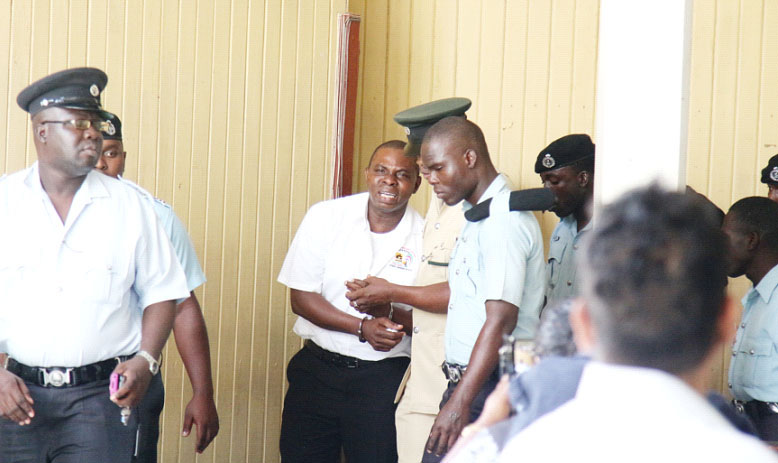On June 26, the Guyana Court of Appeal will decide on the fate of former television cameraman, Andre Hetsberger, who has filed an appeal to his conviction and sentence for the rape of a 13-year-old girl.
Unanimously convicted by a jury back in 2016 for raping the teenager, Hetsberger was sentenced to 25 years in jail by trial judge, Navindra Singh.
The convict would, however, later appeal, citing among other things, that the verdict of the jury was unreasonable and could not be supported having regard to the evidence, and that his sentence was unduly severe.
His attorney, Dexter Todd, argues too, that the trial judge allowed the prosecution to admit evidence which was “highly prejudicial” to his client’s defence, but on the other hand, refused to admit evidence which supported his case.
As far as Hetsberger, (the appellant) is concerned, Justice Singh failed to put his defence adequately or at all to the jury.
At the hearing on Friday, before acting Chief Justice Roxane George-Wiltshire and Justices of Appeal Rishi Persaud and Dawn Gregory, Hetsberger’s attorney argued that the medical report admitted in evidence at the trial revealed no signs of abrasions, vaginal penetration or forced entry to the young girl’s vagina.
As the state had contended at trial, however, Prosecutor Natasha Backer reiterated in her submissions that consideration needed to be given to the fact that the virtual complainant was examined 23 days after the assault.
Against this background, she advanced that it was possible by that time that there were no injuries which may have been seen.
And while Todd argued that this reasoning would have caused the jury to invite speculation into its deliberations, Backer pointed out that notwithstanding the findings of the medical report, the complainant did herself testify to having been penetrated by the convict.
Additionally, the prosecutor asked the court to be reminded by the manner in which the Act defines rape, which caters for “penetration however slight.”
To this end, Backer sought to reason that the law recognises and caters for situations where the penetration would be so slight that no physical signs could be detected thereafter, but makes it clear that the act of rape would have nonetheless been committed.
As far as Todd was concerned, however, the testimony of the time-lapse needed to have come from a doctor, and not from the prosecution. Further advancing his client’s case, he said too, that the child herself spoke of no presence of blood or injury, but only referenced some amount of “burning.”
Justice George-Wiltshire, however, pointed out from the record of evidence that the child did also describe the assault as having been “painful.”
To Todd’s insistent position of the young girl’s testimony of having been penetrated conflicting with the medical report, the chief justice sought to remind him that Sections 69 of the Sexual Offences Act specifically says that there is no need for corroboration of the complainant’s evidence in such instances.
That section, 69 (1) states, “No corroboration of the evidence of the complainant or the sworn or unsworn evidence of a child shall be required for a conviction of an offence under this Act, and the judge shall not direct the jury that it is unsafe to find the accused guilty in the absence of corroboration.”
Todd remained adamant, however, that the finding of the medical report exposed the weakness of the prosecution’s case and why the conviction against his client was unsafe.
Meanwhile, arguing that evidence prejudicial to his client was allowed to be admitted, Todd said that the cumulative effect of this also amounted to rendering an unsafe verdict.
According to him, the jury had been commanded by the trial judge to consider some two nights before the sexual assault which the girl had spent at Hetsberger’s home, as it was too late for her to travel to her home, as having amounted to establishing a “pattern.”
What Todd took issue with regarding this testimony, however, was what he said was no supporting evidence substantiating this purported fact.
The lawyer said too, that there had been a report which the young girl reportedly made to her grandmother where she alleged that Hetsberger “tried” to rape her. He said that there was no clarification of what this statement meant—whether he had already committed the act, or was attempting to so do or which act was being referenced.
Such testimonies he said, should not have been made before the jury, arguing that while it bolstered the complainant’s case, it operated to the detriment of his client’s.
Against such circumstances, he begged the appellate court to uphold his client’s appeal.
Next addressing the issue of sentencing, Todd pointed to the fact that no probation report had been prepared which could have operated to give insight to his client’s background as a means of providing guidance for the most appropriate sentence to be imposed.
Outlining what she described as a number of aggravating factors, coupled with the fact that the convict abused a position of trust, Justice Gregory sought to enquire whether in all the circumstances the sentence imposed was not appropriate.
Though partially agreeing with the judge, however, Todd’s contention remained that the “sentence was quite harsh in all the circumstances.”
Justice George-Wiltshire at this point interjected, reminding Todd that the maximum penalty attracted by such offences was life imprisonment.
For her part, Backer agreed with Justice Gregory’s observations, stating that given the position of trust breached, the sentence imposed against the convict was just and fitting.
At the conclusion of the hearing, the chief justice informed that the court will deliver its decision at 9am on June 26.
Particulars of the offence against Hetsberger are that he sexually penetrated the child on October 17, 2014.





